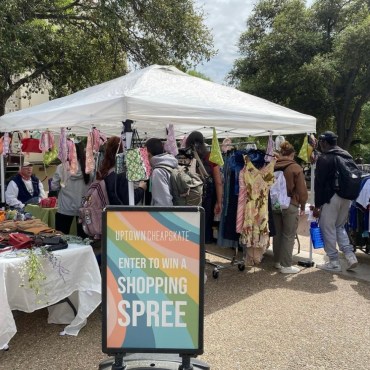Listeners:
Top listeners:
-
play_arrow
KTSW 89.9
Guide to Success: How to Grocery Shop as a College Kid
todayAugust 20, 2017

Brittney Hemmands
Blog Content Contributor
At the beginning ages of our lives, our parents were the ones who bought groceries for us. Our diets would contain some of the same things our parents ate, which is why getting to college and figuring out what to eat can be quite tricky. Multitudes of college students turn to ramen noodle soup and granola bars for quick fixes, but with busy class schedules and late nights, that food will not give us the energy we need. For my fellow classmates who also have apartments or dorms and busy schedules, there is one amazing solution to this – meal prepping.

Choosing a day to make all your food for the week saves time and makes for easy meals on the go, but before you start planning, you have to do the dreaded three words: go grocery shopping. No one likes to spend hours trying to find a few items that you need just for them to run out again by the next week. Thankfully, my three years of successful shopping has given me some insight on how to properly grocery shop, and save money while doing so.
Buy Your Grains, Canned and Frozen Food in Bulk
It seems like buying something in bulk would mean spending more money, but that is not the case. Certain grains, canned and frozen food take months to expire, so buying them in bulk means you will not have to buy them again for a while. I always stack up on pasta, rice, beans and frozen fruits and vegetables at the store so that when I go back, all I have to worry about is the fresh food. While the first grocery receipt may read more expensive, the ones after that will be generously lower. My grocery list after buying my grains, canned and frozen fruit usually ranges from $25 to $30. Ultimately, you end up saving more money overall.
Buy Fruits and Vegetables in Season
While buying the same fruits and vegetables can get expensive, switching off certain ones for others that are in season can save a lot of money. For an example, buying avocado in season can be anywhere for 20 to 40 cents, but buying it out of season can end up being closer to a dollar just for one! So save your money and pick your fruits and vegetables accordingly, you may get try some exotic foods you would not have tried before.
Avoid the Weekend Rush
You can expect long lines and crowded stores on Sunday afternoons, so it is better to avoid them and find time that will make your shopping experience easier. Buying groceries on weekdays will be a lot quicker and if you have to buy on weekends, aim for early morning or late nights.
Pay Attention to the Coupons/Sales
In most grocery stores, there are newspapers that show the deals for the week. Sometimes there are even coupons in front of items that give you price discounts or allow you to buy an item and get one free. Keep an eye out for these newspapers, as they will help you avoid the clutter of people and will direct you towards what cheap items you can get it.
Try Different Grocery Stores
Going to the same grocery store each time could mean you are missing out on the deals somewhere else. Sales vary depending where you go, so make an effort to know what foods you usually get and compare the prices between stores. This may seem a bit time consuming, but there are plenty of applications and website that aim to keep customers up to date on which grocery store has the product for a lower price.
Featured image by Brittney Hemmands.
Share this:
- Click to share on Twitter (Opens in new window)
- Click to share on Facebook (Opens in new window)
- Click to share on Tumblr (Opens in new window)
- Click to share on Pinterest (Opens in new window)
- Click to share on Reddit (Opens in new window)
- Click to email a link to a friend (Opens in new window)
- Click to print (Opens in new window)
back to school Brittney Hemmands College Tips Grocery shopping TXST
Similar posts
Post comments (1)
This Blog is Propery of KTSW



willowdot21 on August 21, 2017
Excellent advice 💜